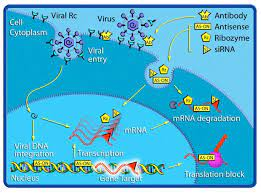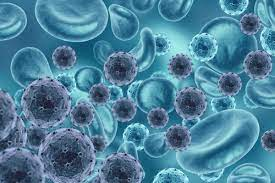VIRAL DISEASES AND THEIR CURE.
Viral diseases are caused by different types of viruses and can affect various organs and systems within the human body. While some viral diseases have specific treatments or vaccines available, others may require supportive care to alleviate symptoms and aid the body's natural healing process. Here are a few examples of viral diseases and their potential treatments:
Influenza (Flu): The flu is a common viral infection that affects the respiratory system. It is often managed with rest, fluids, and over-the-counter pain relievers to reduce fever and body aches. Antiviral medications like oseltamivir (Tamiflu) can be prescribed in certain cases, especially for individuals at high risk of complications.
Human Immunodeficiency Virus (HIV): HIV attacks the immune system, leading to acquired immunodeficiency syndrome (AIDS). While there is no cure for HIV, antiretroviral therapy (ART) is used to manage the infection and prevent its progression. ART involves a combination of medications that suppress the virus, allowing individuals with HIV to lead healthy lives.
Hepatitis C: Hepatitis C is a viral infection that affects the liver. Recent advancements have led to the development of highly effective direct-acting antiviral (DAA) medications. These medications, taken over a specific duration, can cure hepatitis C in the majority of cases, preventing long-term liver damage and complications.
Herpes Simplex Virus (HSV): HSV causes oral and genital herpes. While there is no cure for herpes, antiviral medications like acyclovir, valacyclovir, and famciclovir can help manage and reduce the severity and duration of outbreaks. These medications are often prescribed during active episodes or as suppressive therapy for individuals with frequent recurrences.
Measles: Measles is a highly contagious viral infection characterized by fever, rash, cough, and runny nose. The best prevention for measles is vaccination with the measles, mumps, and rubella (MMR) vaccine. There is no specific cure for measles, so supportive care such as rest, hydration, and fever-reducing medications are typically recommended.
It is important to note that treatment options and guidelines may evolve over time as new research and medical advancements occur. Therefore, it is crucial to consult with healthcare professionals for accurate and up-to-date information on specific viral diseases and their treatments.





No comments:
Post a Comment